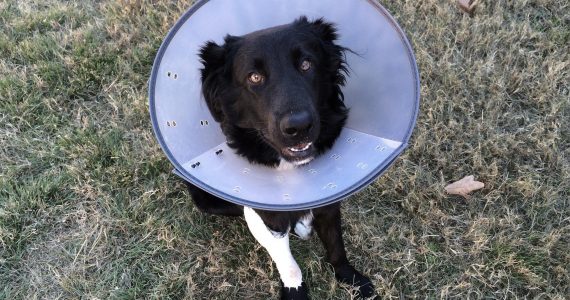Your Pet is Having Surgery
What happens before surgery?
A pre-anesthetic examination is always performed by your pet’s veterinarian on the day of surgery. Pre-anesthetic blood work is strongly recommended to ensure your pet is a good candidate to go under anesthesia. An IV catheter is placed in the front limb so fluids and medications can be administered. Once the procedure begins, your pet is maintained on anesthetic gas mixed with oxygen.
Will my pet be in pain?
Because most anesthetic gases do not provide pain control, your pet will receive pain medication before and after the procedure. Your veterinarian may also prescribe oral pain medication for you to give at home for the next few days to help keep your pet comfortable. Depending on what type of surgery your pet has, your pet may be sore the first night home and possibly over the next few days. While some degree of discomfort is expected, if you are concerned about your pet’s behavior, please contact us as soon as possible. If we are closed, please contact your local emergency veterinary hospital.
Adelaide Emergency Centre, 102 Magill Road, Norwood. Ph: 8362 1722
Adelaide Animal Emergency and Referral Centre, 119 Anzac Hwy, Kurralta Park. Ph: 8371 0333
What can I expect when I bring my pet home tonight and what do I need to do for my pet?
Someone will have to be home with your pet tonight. Your pet will have some redness of the skin where surgery was performed. Your vet may have used visible external sutures or dissolvable internal sutures that you cannot see, depending on the surgical technique and personal preferences. It is normal for your pet to be sleepy, less coordinated and may drool for 12-24 hours after surgery. Your pet should be responsive and able to walk, but will most likely want to sleep when home.
Special diet instructions:
Wait at least two hours after getting home before feeding. Feed your pet only 1/4 to 1/2 the normal amount of food and water. Pets may feel nauseous after surgery or anesthesia and vomit if given large amounts of water or food. Tomorrow you may offer food and water as usual, unless otherwise instructed by your pet’s vet.
Watch your pet for the following signs:
- Completely unresponsive/inability to stand
- Refusal to eat or drink for more than 12 hours
- Swelling/bleeding from the incision site
- Pale/white mucus membranes (view the gum tissue
inside the mouth) - Severe vomiting or diarrhea
If you notice any of these symptoms, or have any questions or concerns about the health of your pet, please contact us on 8340 0388.

